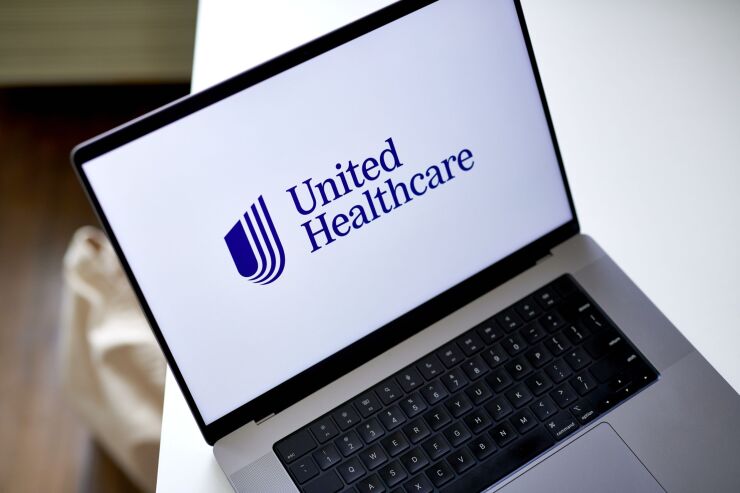Doctors across the U.S. are stretching to keep their practices afloat as a debilitating cyberattack on a once little-known company at the center of the healthcare system continues to cause havoc.
The Feb. 21 attack against Change Healthcare, a subsidiary of the largest U.S. health insurer by market value, UnitedHealth Group, has seized the healthcare system for three weeks and counting, halting the normal flow of billions of dollars in payments between doctors, hospitals, pharmacies and insurers. The paralysis is tilting some clinics into financial peril.
Among the hardest-hit are smaller centers that give patients chemotherapy or infuse medication for other illnesses, and count on timely insurance payments to cover their drug purchases. Several cancer practices said that they're concerned about their ability to pay for drugs as cash flows dry up. Some said that pharmaceutical wholesalers have been allowing them to delay payments — a sign that the effects of the hack are seeping into new corners of the $4.5 trillion U.S. healthcare industry. Change has said it processes
Read more:
The financial pressure on health clinics is growing as expenses and unpaid bills accumulate. At a community health center in east Texas and Arkansas, the billing team is working weekends and the clinic is mailing paper claims to health insurers, running up a tab for printing and postage. Some physicians in New Mexico are forgoing their paychecks to help make ends meet.
"Practices by and large are still not getting paid, and it is a disaster," said Jesse Ehrenfeld, president of the American Medical Association and an anesthesiologist in Milwaukee.
Money meanwhile is piling up at insurers who continue to collect premiums but aren't receiving claims that used to travel on Change Healthcare's networks. That's up to 20% of
Biden administration leaders asked UnitedHealth CEO Andrew Witty and leaders of other health insurers to make more emergency funding available to providers during a meeting on Tuesday, according to a
Read more:
A representative for UnitedHealth declined to comment on the meeting.
UnitedHealth Group CEO said last week that some
"I can't make an estimate," UnitedHealth Chief Operating Officer Dirk McMahon, who is leading the company's response, said in a March 7 interview.
Precarious practices
While larger hospitals are expected to withstand the crisis, the outlook is less clear for smaller medical practices with weak finances that rely on Change's services, according to Moody's. Much of the response so far has relied on insurers and vendors agreeing to waive the normal ways they do business to keep practices running.
The pharmaceutical industry is also taking note. Bristol Myers Squibb is "working to offer a temporary adjustment in payment terms" for cancer medicines and blood disorder drugs, a spokesperson said.
Central hub
Cyberattacks happen all the time in healthcare. Hackers pilfer records to sell on the dark web. Ransomware gangs lock up hospital computers. Most
Read more:
U.S. officials estimate billions of dollars in payments are being affected by the disruption to Change's networks each week, according to a senior Biden administration official, who asked not to be named describing private assessments.
Mostly invisible until the hack, Change Healthcare was designed to replace mountains of healthcare paperwork with more efficient electronic transactions. Its predecessor, Emdeon, launched in the mid-1990s and rode the tech bubble to an initial public offering. At one point, it operated the WebMD website.
Shifting gears
Following the Change hack, UnitedHealth offered workarounds, including some run by its own Optum subsidiary. The largest competing clearinghouse, Availity, opened a free service that was adopted by more than 300,000 new providers and dozens of health systems and payers. Claims traveling on its network jumped 40% over typical levels, CEO Russ Thomas said.
Yet companies that had relied on Change's services couldn't just flip a switch. Changing payment clearinghouses normally requires months of planning, and even practices that have alternatives have been processing less than their usual amount of business, with inbound claims diminished. One health insurance executive said inbound claims were still down 20% to 30%, and payments to the company's providers remained frozen.
Read more:
U.S. officials have repeatedly urged UnitedHealth to communicate more transparently, speed up its fixes and provide more flexibility to its customers, according to three Biden administration officials familiar with the matter, who asked not to be named as the details are private. Top Biden health authorities
Over the weekend, Medicare said it plans to let cash-strapped providers seek advance payments, but they won't be automatic advances like the agency made during Covid disruptions.
UnitedHealth has announced two programs intended to supply financial lifelines to providers facing cash crunches, and said last week it would act as a funder "of last resort" on a case-by-case basis. The company called on other insurers to offer relief, but none of its largest rivals have publicly said they will.






